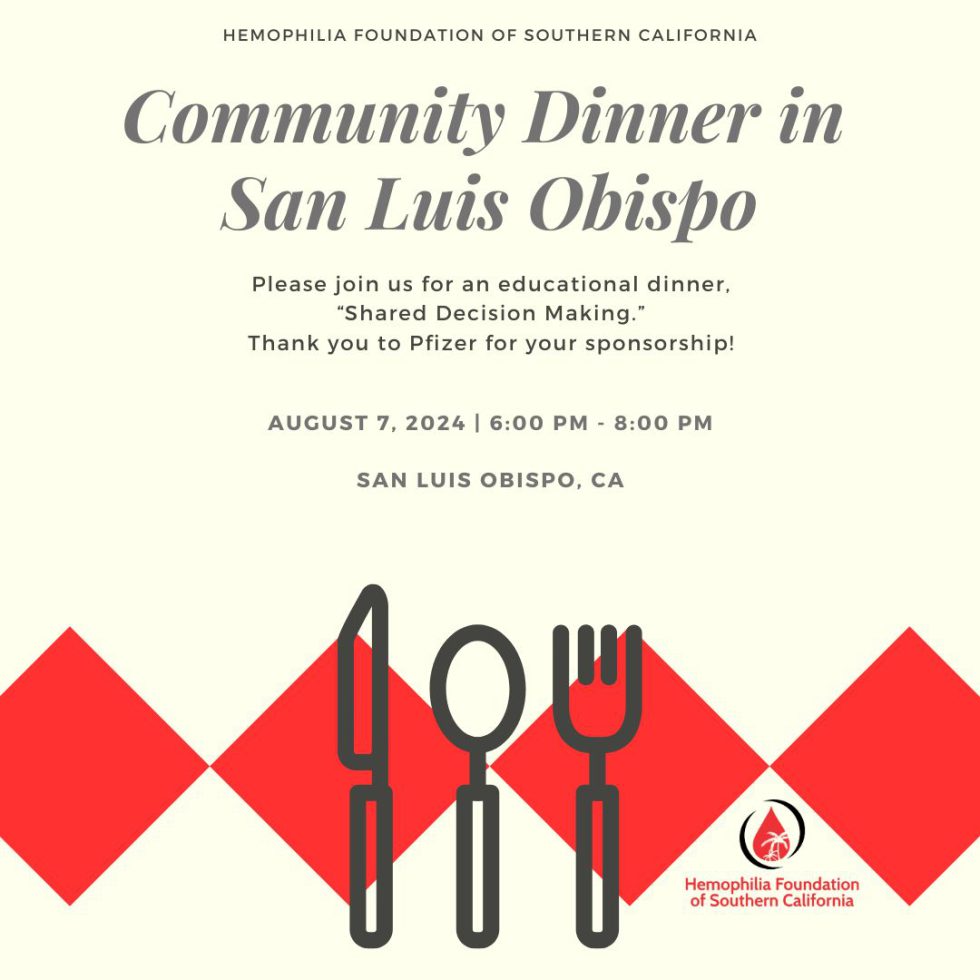Women with Bleeding Disorders
Approximately one third of carriers have clotting factor levels of less than 60% of normal and may experience abnormal bleeding. In most cases, carriers experience symptoms similar to those seen in men with mild hemophilia, as well as some that are specific to women, such as prolonged or heavy menstrual bleeding.
Symptomatic carriers and women with hemophilia:
- May bruise more easily
- May experience prolonged bleeding after surgery
- May experience serious bleeding after trauma
- Often have heavier and more prolonged bleeding during their periods (Heavy Menstrual Bleeding, or HMB) and are more likely to require an iron supplement or to undergo hysterectomy
- Are more likely to have postpartum bleeding following childbirth
Bleeding after surgery or trauma
Studies have shown that the most common symptom women experience is prolonged bleeding after surgery such as a tooth extraction or tonsillectomy. They are also at risk of serious bleeding after an accident or injury.
Heavy Menstrual Bleeding (HMB)
Carriers with low factor levels have a greater risk of heavy or prolonged menstrual bleeding (menorrhagia, or HMB). Girls may have especially heavy bleeding when they begin to menstruate. Excessive blood loss can lead to anemia due to low levels of iron in the blood, resulting in weakness and fatigue.
Dysmenorrhea and mid-cycle pain
Women with bleeding disorders are more likely to experience pain during their menstrual bleeding (dysmenorrhea). They may also experience a small amount of internal bleeding during ovulation, which can cause abdominal and pelvic pain (known as Mittelschmerz, a German word meaning “middle pain”). This bleeding can be severe or even life-threatening, especially in carriers with very low clotting factor levels, and may require urgent medical attention.
Perimenopausal bleeding
Menopause is the time in a woman’s life when menstrual periods permanently stop. Perimenopause is the 3- to 10-year period before menopause when hormones are “in transition.” Heavy and irregular menstrual bleeding occurs more commonly in all women as they approach menopause. Gynecological conditions (such as fibroids, polyps, etc.) are also more common at this stage of life. Carriers of hemophilia are at risk of more severe bleeding symptoms and may require treatment.
Other gynecological problems
During the process of ovulation, women can develop simple (also called functional) ovarian cysts. These cysts are usually small, do not cause any problems, and go away on their own. Carriers of hemophilia seem to have a greater risk of bleeding into these simple cysts, which then become “hemorrhagic” ovarian cysts. Hemorrhagic ovarian cysts can cause considerable pain and may require urgent medical intervention.
Some carriers also suffer from endometriosis, a painful condition in which endometrial tissue, the tissue that lines the uterus, forms in the abdomen or other parts of the body. Although we do not yet understand the cause of endometriosis, women who experience heavy menstrual bleeding are more at risk of developing the condition.
Additional Resources
Ignite Women’s Retreat: Join HFSC’s conference focused on women and teens with genetic bleeding disorders. Learn More
Betteryouknow.org is a website for women and men who may experience symptoms of a bleeding disorder but have not been diagnosed. With this site, the National Hemophilia Foundation (NHF) hopes to raise awareness and knowledge of bleeding disorders as part of our Better You Know campaign. Throughout the site, you’ll find a risk assessment, tools, and other information to learn whether you are at risk for a bleeding disorder and the next steps you can take to seek care.
Women and Girls Bleeding Disorder (WGBD) Clinics of Excellence are clinics that have programs and services focusing specifically on the identification, diagnosis, management and treatment of women and/or girls with bleeding and other blood disorders. The Foundation of Women and Girls with Blood Disorders created this directory to assist women in locating these clinics. Click here to find a clinic near you: https://www.fwgbd.org/clinics
HFA Blood Sisterhood App: This mobile was created and developed by HFA to support women in their tracking and logging of their menstrual and non-menstrual bleeds. Features of the app include detailed product strength tracking, period reminders, symptom logging, photo add feature and the app is available in Spanish. Data logged on the app is easily emailed to the user who can then share this information with their provider. The app is free to download and available in the iTunes and Google Play stores. https://www.sisterhoodapp.com/
This brochure was designed for patients to give to their providers to help educate them about bleeding disorders in women. Foundation for Women and Girls with Blood Disorders and the Hemophilia Federation of America


